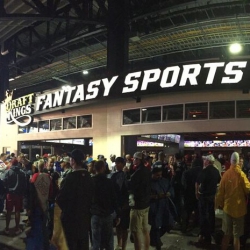
DraftKings and FanDuel continue operations until the court decision in May or later, if no decision is forthcoming.
A New York appeals court ruled that daily fantasy sports sites can continue to operate for months, until a decision is rendered by the courts. DraftKings and FanDuel will be able to accept payments from New York players until the current football and basketball seasons are over, along with the entirety of the upcoming baseball season.
Eric Schneiderman, the New York Attorney General, sent cease-and-desist letters to DraftKings and FanDuel in November, telling them that DFS is illegal in New York State and the companies had 5 days to stop accepting players. Each of the companies filed a lawsuit against Eric Schneiderman, challenging the AG’s interpretation of the law that daily fantasy sports is illegal.
Manuel Mendez Ruling
The suit was heard on November 25, but Judge Manual Mendez of the New York Supreme Court ruled against the DFS companies. At the same time, Mendez told the companies to stop accepting payments from New York residents until a decision was rendered in the case. Then a Manhattan appellate court overruled Mendez, granting the DFS companies the right to continue operations ntil a decision occurred.
At first, that meant January 11, 2016, when the case would be heard by the NY Supreme Court. Now, DraftKings attorney Joshua Schiller says the decision allows his company and FanDuel to keep accepting money from players until late-fall, if the need arises. The court is expected to hear the case this spring, with May being the time most-often discussed. If the case were pushed back any length of time, the DFS companies could operate in New York until late-fall.
Statements from DraftKings
Randy Mastro, another DraftKings attorney, said, “We are very gratified by the court’s ruling. It means that ‘hundreds of thousands of New Yorkers who love daily fantasy sports can continue to enjoy these contests.’”
Eric Schneiderman’s Arguments
Eric Schneiderman insists all fantasy sports is illegal in the State of New York. He does not make a distinction between a “game of chance” and a “game of skill”. Schneiderman does not make a distinction between daily and yearly fantasy sports. He sees that some degree of chance is involved, that people pay money to enter contests, and people receive prize money for winning. Under those circumstances, Eric Schneiderman says any fantasy sports are illegal under New York gaming laws.
If Schneiderman’s version of the law was verified, the New York state legislature would have to pass a specific law to legalize and (probably) regulate fantasy sports. That law might or might not have provisions for daily fantasy sports. In any case, the gaming habits of millions of New Yorkers are being tried.
$4 Billion in Punitive Damages
In late-December, Eric Schneiderman raised the stakes, adding an amendment to his lawsuit which demands FanDuel and DraftKings pay back each and every DFS competitor who have ever lost money on their sites. They also would have to pay $5,000 apiece to each of those people. If this version of the lawsuit won, DraftKings and FanDuel would have to pay an estimate $4 billion. Even if the courts agree with Schneiderman’s version of the law, but refuse his punitive damages, the DFS companies stand to lose 10% of their revenues if New Yorkers cannot play on their sites.
Differing Visions of New York Gaming Law
The DFS companies argue that an appointed official is taking it upon himself to run legitimate companies with Fortune 500 investors out of business, while overnight turning millions of everyday New Yorkers into lawbreakers. Eric Schneiderman argues he is forcing illegal companies to pay back what they won through predatory behavior, while punishing them with fines for their conduct. He also argues that the legality of fantasy sports should be codified under New York law, instead of existing in a legal void.
It is a stark difference of opinions, pitting Laissez-faire economic arguments against rules of law arguments and individual privacy issues against social justice concerns. At heart, DraftKings and FanDuel argue that gamers are not forced to play and they should be allowed to do with their money as they choose, while Schneiderman argues that people should be protected from themselves and deceptive advertising with a more liberal approach to government. Points have been scored on either side, but the New York Supreme Court largely holds the future of DFS gaming in America in its hands. That future will be decided in May (or later), but for now, DraftKings and FanDuel remain in operation in New York.
